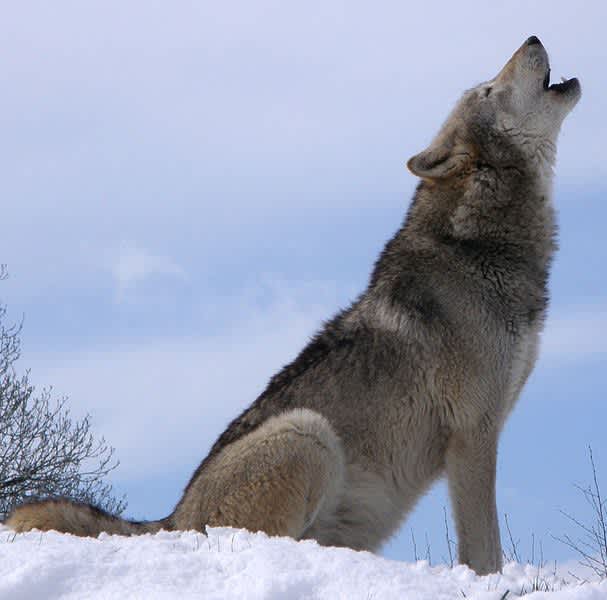Michigan a Battleground in National Wolf Hunting Debate
OutdoorHub Reporters 08.21.13

Last month the Michigan Department of Natural Resources (DNR) called for a delay in the start of wolf hunting licenses sales, but this has not stopped ongoing efforts by animal rights groups to halt the upcoming season. The licenses were originally scheduled to go on sale on August 3, but the first sale of licenses was later pushed to September 28.
While this delay gives the DNR more time to prepare for the high demand of hunters looking to purchase a license, it also gives opponents of the hunt time to gather support. Earlier in July the group Keep Michigan Wolves Protected (KMWP) filed a second petition to ban wolf hunting in Michigan. The group, which is backed by the Humane Society of the United States (HSUS), gathered 250,000 signatures already on a petition seeking a referendum to stop the hunt. However, legislation was passed by lawmakers that gave additional power to the state’s National Resources Commission (NRC), rendering the petition useless. Subsequently, the NRC was free to designate game species and hunting seasons. According to MLive.com, the NRC voted to approve a fall wolf hunt in sections of the Upper Peninsula.
“That bill was deliberately introduced and passed to scuttle our first referendum effort to remove wolves from the valid species list for hunting,” said Jill Fritz, Director of the KMWP and state director for the Humane Society of the United States. “We just want Michigan voters to be able to have a say in protecting wildlife, and that was taken away from them. They’re going to go out there, collect signatures, and get their voice back.”
Forty years ago, only six known gray wolves existed in Michigan. A national recovery program was initiated by the U.S Fish and Wildlife Service (USFWS) to bring the species back to their native range. There are more than 650 wolves currently living in Michigan. a number which DNR officials say far exceeds their recovery goal. Similarly, farmers and residents who live near wolf territory are increasingly worried about coexistence with their new neighbors. Hunters are also concerned that more wolves will mean less deer.
Animal rights groups, on the other hand, are worried that the Michigan wolf population will plummet with the introduction of hunting. They point to the fact that Minnesota, which also hosts a wolf hunt, has this year cut their quota in half due to falling wolf numbers.
“Minnesota’s rush to a hunt is now causing them to backpedal,” Fritz told the Detroit Free Press. “And that’s something we can’t afford to do here in Michigan because we have so many fewer wolves.”
Michigan DNR furbearer expert Adam Bump disagrees, saying that Michigan’s fall quota of 43 wolves will have little impact.
“We’re pretty confident the hunt will not affect the trend of the wolf population in the U.P.,” he said.
On a national scale , the USFWS proposed in June to return management of gray wolves to state wildlife agencies. With the possibility of wolf hunts opening up across America, hunters, conservationists, and animal rights activists are looking to Michigan as a battleground state for the issue. The U.S. Sportsmen’s Alliance, an organization devoted to protecting the rights of hunters and anglers, claims that the majority of the funds raised by KMWP have come from out-of-state sources.
“There is very little that is home grown about the attempt to overturn the management of wolves in Michigan,” said Evan Heusinkveld, director of government affairs for the U.S. Sportsmen’s Alliance. “The money financing this campaign isn’t from Michigan, and neither is the company being paid to place this issue before the voters.”
By late July KMWP had already raised $558,000, funds which will go towards paying consultants, staff salaries, and other organizational needs. Although experts say it is unlikely–if not out of the question–for naysayers to stop the 2013 fall wolf hunt, Michigan is now at the forefront of the national wolf debate.

